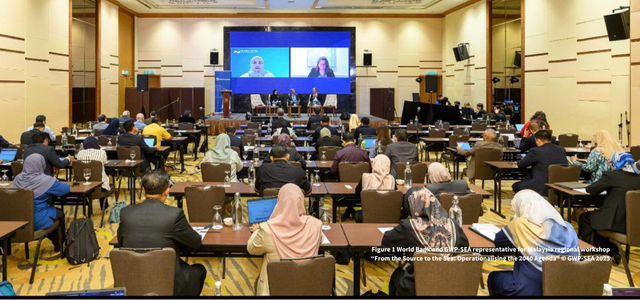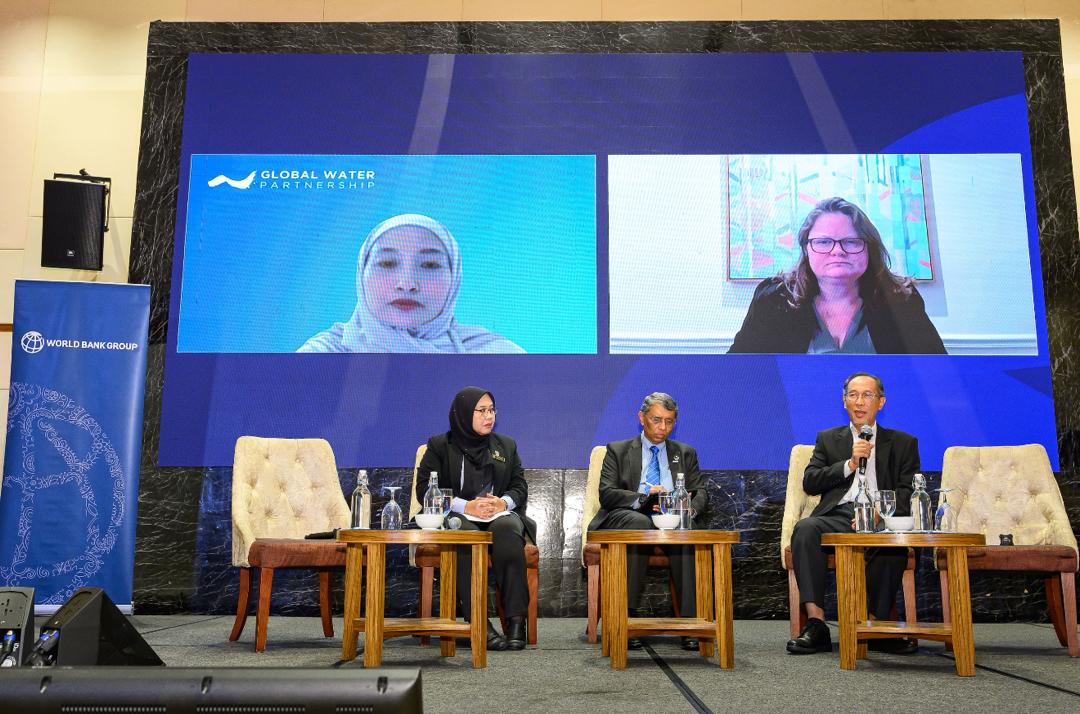The event brought together policymakers, experts, and stakeholders from across Southeast Asia to drive forward regional cooperation and innovation in water resource management. Organized by the World Bank and the Malaysian Water Partnership, in collaboration with the Ministry of Energy Transition and Water Transformation (PETRA), the workshop marked a crucial step in advancing Malaysia’s Water Sector Transformation 2040 (AIR 2040) strategy.
The workshop was held in conjunction with Malaysia’s ASEAN Chairmanship in 2025, underscoring the country’s leadership role in shaping the region’s water future. Dato’ Mohd Rodzwan bin Mohd Baba Sakri, Deputy Secretary General (Water), Ministry of Energy Transition and Water Transformation of Malaysia delivered the opening remarks and World Bank Country Manager Judith Green highlighted the urgency of shared responsibility in addressing water security and climate resilience.
A central focus of the discussions was the implementation of Integrated Water Resources Management (IWRM), a globally recognized framework for sustainable water governance. The first-panel session brought together experts, including Professor Dr. Zulkifli Yusop (Academy of Sciences Malaysia), Puan Haslina Amer (Selangor Water Management Authority), Eileen Burke (World Bank), and Louise Desrainy, Deputy Regional Coordinator of GWP-SEA.
Louise emphasized Malaysia’s progress in IWRM implementation, citing the country’s rise from a score of 43 in 2017 to 73 in 2023, as assessed under SDG 6.5.1 IWRM. This achievement ranks Malaysia second among ASEAN nations, behind only Singapore. She explained that the progress in Malaysia was due to a strategic policy shift from the 2012 Water Resources Policy to the Water Sector Transform 2040 which indicates a significant change in water management strategies, focusing on long-term, comprehensive, and adaptive approaches. However, several actions still need to be prioritized for 3 other IWRM sub indicators: Subnational/basin budget for IWRM, Basin/aquifer level organizations, and participation of vulnerable groups.
Figure 2 Louise and other speakers in the workshop © GWP-SEA 2025
The discussion explored the examples of cross-border and cross-sector collaboration and urged Malaysia to learn from successful regional models, such as Indonesia’s Citarum Harum program and the cooperative framework of the Mekong River Basin. These initiatives offer replicable approaches for integrated basin planning, pollution control, and multi-sector coordination.
Beyond policy integration, the workshop sessions explored climate resilience through the lens of nature-based solutions. They showcased the transformative potential of digital technologies, from drone surveillance to AI-powered monitoring, in modernizing Malaysia’s water infrastructure.
The event concluded with a call for stronger regional partnerships and a unified commitment to operationalize Malaysia’s Water Sector Transformation 2040 (AIR 2040) agenda. As Malaysia assumes a leading role in the region, the workshop emphasized that success in water governance will depend not only on national reforms but also on shared regional strategies, an ethos at the heart of GWP-SEA’s mission.

